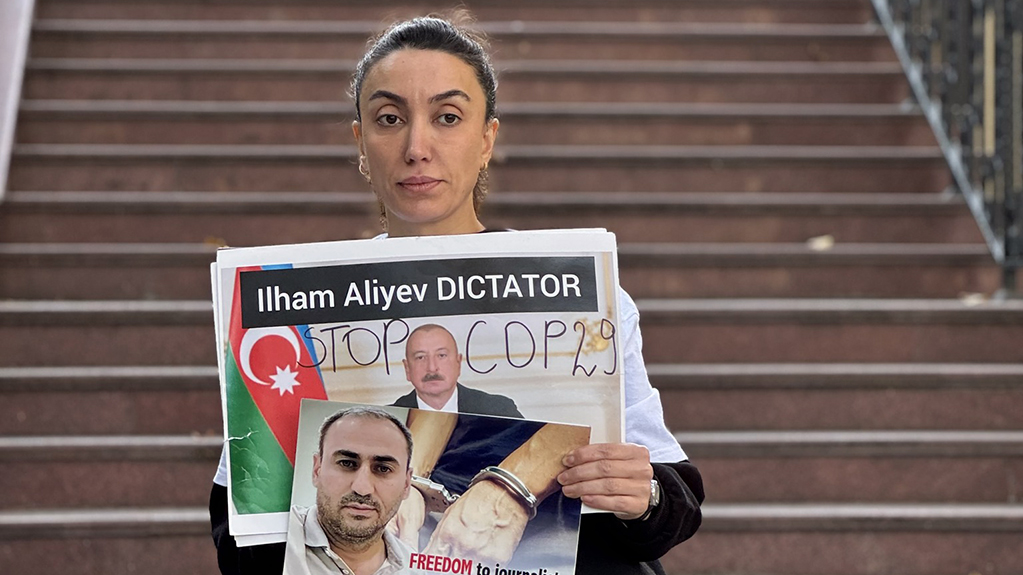Human rights defenders of Azerbaijani journalist Afgan Sadygov, who is imprisoned in Georgia, are urging Anri Okhanashvili, the Minister of Justice in Georgia's illegitimate government, not to allow his extradition to Azerbaijan.
News
On November 28, the Tbilisi City Court approved the prosecutor’s motion for the extradition of journalist Afgan Sadygov, and the Supreme Court upheld the decision.
The Center for Social Justice, which represents Afgan Sadygov, believes that the court rulings are "clearly unfounded and do not align with the factual circumstances of the case or the requirements for protecting fundamental human rights."
In response to the prosecutor’s motion, Afgan Sadygov and his lawyers argued that his extradition to Azerbaijan was politically motivated and arbitrary, essentially linked to his journalistic work and years of criticism of government crimes and corruption.
"The Republic of Azerbaijan is witnessing mass persecution of activists, human rights defenders, and journalists, as well as torture and inhuman treatment in prisons. There is also widespread violation of the right to a fair trial. It is therefore clear that Afgan Sadygov, like many other journalists, will become a victim of basic rights violations," states the Center for Social Justice.
According to the organization, the courts only assessed the case formally and concluded that there were no risks of torture or ill-treatment for Afgan Sadygov in Azerbaijan, based on diplomatic guarantees provided by Azerbaijan’s competent authorities. Moreover, the courts determined that the case materials did not prove that he was being persecuted for his journalistic activities.
"Unfortunately, the courts did not properly consider the assessments of international organizations, including Amnesty International and the OSCE, which openly state that Georgia would violate its international obligations in the event of Sadigov’s extradition, as he faces a risk of ill-treatment if sent to Azerbaijan.
The unfounded decisions made by the general courts once again highlight that Georgia's judicial system is neither independent nor impartial, and that it fails to restrain and control the executive branch in cases of high political importance.
The courts have failed in cases involving high risks of violations of rights that are absolutely protected by the Constitution and human rights law," the human rights organization concludes.
According to the lawyers, although the courts have recognized the extradition as permissible, the procedure cannot be implemented in practice until the dispute over the granting of international protection status in Georgia, which is currently ongoing in the Tbilisi Court of Appeal, is resolved. Additionally, the Minister of Justice has the authority to make a negative decision regarding the extradition of a person to a foreign state based on humanitarian grounds or other circumstances.
The Center for Social Justice urges Anri Okhanashvili to consider the serious risks of violating the journalist’s absolute rights, the high importance of protecting the safety and future of the journalist’s family, and to prevent his extradition.
The organization is also appealing to the Tbilisi Court of Appeal to grant international protection to Afgan Sadygov, thereby safeguarding the journalist from torture, inhuman treatment, and arbitrary persecution.
Afgan Sadygov was arrested in Tbilisi on August 3 of this year by officers of the Georgian Ministry of Internal Affairs for the purpose of extradition to Azerbaijan. He has been held in pre-arrest detention as a preventive measure since then and has been on a hunger strike in the prison medical facility for more than two months. His health condition is serious.















